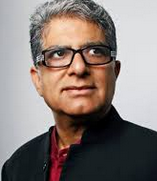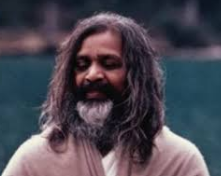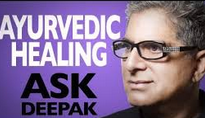THE CHOPRA CENTER FOR WELL BEING TIMELINE
1947: (October 22) Deepak Chopra was born in New Delhi.
1968: Chopra graduated from All India Institute of Medical Sciences as a physician.
1970: Chopra married his wife, Rita. Shortly after, they moved to the United States.
1973: Chopra became a board-certified physician in internal medicine and endocrinology.
1980: New England Memorial Hospital named Deepak Chopra Chief-of-staff.
Circa 1985: Chopra turned to Ayurvedic medicine and Transcendental Meditation (TM) to combat drinking and smoking problems.
1985: After meeting Maharishi Mahesh Yogi, Chopra established the Maharishi Ayurveda Health Center for Stress Management in Lancaster, Massachusetts, leaving traditional medicine.
1989: Quantum Healing, Chopra’s first book, was published. He went on to publish over fifty more books over the next two decades.
1991: Oprah Winfrey featured Deepak Chopra on her television show, sending his book sales skyrocketing and creating celebrity interest in his services. Later that year, he was featured on the cover of People magazine.
1993: Chopra left Maharishi’s company and began working for Sharp Health Care as the Executive Director at their Institute for Human Potential and Mind-Body Medicine.
1996: Sharp Institute came under new ownership, which prompted Chopra to open his own organization, the Chopra Center of Well Being.
1998: The Journal of the American Medical Association published an entire issue devoted to alternative medicine
2012: Gotham Chopra (Deepak’s son) directed a documentary titled Decoding Deepak, a film which claimed to provide an inside look at the self-help guru’s daily life.
GROUP FOUNDER/HISTORY
Deepak Chopra was born on October 22, 1948 in New Delhi, India to a wealthy Hindu family. His father was a respected  cardiologist at the time and encouraged his son to follow the same path. Chopra, however, had other ideas: he wanted to become a journalist or actor. His love for reading prompted his father to give him the book Arrowsmith by Sinclair Lewis, a text which led him to seek a career in medicine after all (“Deepak Chopra Facts” 2010).
cardiologist at the time and encouraged his son to follow the same path. Chopra, however, had other ideas: he wanted to become a journalist or actor. His love for reading prompted his father to give him the book Arrowsmith by Sinclair Lewis, a text which led him to seek a career in medicine after all (“Deepak Chopra Facts” 2010).
In 1968, Chopra graduated from the All India Institute of Medical Sciences as a physician, and in 1970, he married his wife, Rita. The couple subsequently had two children, Gotham and Mallika. The family moved to the United States in order for Chopra to pursue a residency in a New Jersey Hospital and at the University of Virginia. He received his license as a board certified physician specializing in endocrinology. Over the next few years, he practiced in New England, leading to a position as the Chief of Staff at New England Memorial Hospital beginning in 1980 (Baer 2003).
During a trip to India in 1981, Chopra was introduced to Ayurveda, an ancient Indian folk medicine tradition. Ayurveda would prove to provide the basis for Chopra’s future theories. As a result of stress tied to his role as a physician, Chopra reports drinking
and smoking heavily while on staff at New England Memorial Hospital. Having become skeptical of traditional biomedicine, he turned to Ayurvedic medicine to combat these problems (Baer 2003). At this time in the United States, the holistic health movement had gained a foothold in popular culture. Reading a book on Transcendental Meditation led Chopra to attend a seminar conducted by Maharishi Mahesh Yogi (MMY), the “father of TM.” Soon after, Chopra began to develop a friendship with the yogi. Reportedly, the combination of TM and Ayurveda caused a dramatic personal transformation, and in 1985, he left traditional medicine to open the Maharishi Ayurveda Health Center for Stress Management in Lancaster, Massachusetts (Baer 2003).
Deepak Chopra published his first book, Quantum Healing, in 1989. The book describes ways in which to heal the body from within using quantum mechanics (Ismael 2009). The next book published was titled Unconditional 
Life: Discovering the Power to Fulfill Your Dreams. These writings gained widespread popularity after Chopra appeared on the Oprah Winfrey Show to promote his books, leading to his appearance on the cover People Magazine and launching him into the public spotlight. He has gone on to author over sixty-five books and co-authored many more articles on topics such as leadership, anti-aging, God, wealth and intelligence. He has continued to appear publicly to promote alternative medicine and holistic health regularly. His success has led him to offer classes and products that reflect his spiritual and medical points of view.
Chopra has also been a contributor to the Huffington Post, Washington Post, San Francisco Chronicle, and Times of India. He has served as a senior scientist with the Gallup Corporation, an adjunct professor at Columbia School of Business, and maintained medical licenses in Massachusetts and California. His net worth is estimated at eighty million dollars.
DOCTRINES/BELIEFS
Deepak Chopra bases his system of healing and transformation on a combination of alternative medicine and scientific concepts. His core beliefs rely on the idea that the body and spirit are deeply connected. Chopra frequently uses the term “quantum healing” in discussing the human body’s capacity to heal itself. In a 1995 interview, Chopra described this as “healing the body-mind from a quantum level…which is not manifest at a sensory level. Our bodies ultimately are fields of information, intelligence and energy. Quantum healing involves a shift in the fields of energy information, so as to bring about a correction in an idea that has gone wrong. So quantum healing involves healing one mode of consciousness, mind, to bring about changes in another mode of consciousness, body” (Chopra 1995). Chopra indicates that meditation is an important part of bringing about these changes, although he no longer promotes Transcendental Meditation. Overall, his philosophies aim to nurture “balance, healing, transformation, and the expansion of awareness” (The Chopra Center 2014).
RITUALS/PRACTICES
In regards to rituals, Deepak Chopra and the Chopra Center for Well Being promote a variety of alternative practices, often inspired by eastern spiritual principles. Meditation is a large part of affecting transformation within the individual. Online, the Chopra Center Marketplace offers a variety of tools for achieving balance and optimal health, such as aromatherapy products, audio products for meditation practice, books, supplements and herbs, to name a few. Websites associated with the Chopra Center and Deepak Chopra also offer online format programs, online daily meditations and podcasts to aid in individual practice.
ORGANIZATION/LEADERSHIP
After founding and managing the Maharishi Ayurveda Health Center for Stress Management in Lancaster, Massachusetts between 1985 and 1993, Chopra left the Maharishi Health Center to work for Sharp Institute for Human Potential and Mind Body Medicine. In 1996, he left Sharp in order to open the Chopra Center for Well Being with neurologist David Simon. The Center states that its goal is to “guide guests in timeless tools and healing principles that they can use to nurture their own health, restore balance, and create greater joy and fulfillment in their lives.” It offers classes, medical consultations, spa treatments, online Vedic counseling and Ayurvedic products to promote balance and well-being (The Chopra Center 2014). In addition to the original Chopra Center, an alternate center for the treatment of addiction has been established. The Chopra Center maintains a website offering information regarding Dr. Chopra’s theories and links to Chopra’s subsidiaries (Well World, Intent, Deepak Central, Deepak Chopra Radio, Deepak Homebase, Daily Challenge, Ahalife, and Curiosity).
In 1996, he left Sharp in order to open the Chopra Center for Well Being with neurologist David Simon. The Center states that its goal is to “guide guests in timeless tools and healing principles that they can use to nurture their own health, restore balance, and create greater joy and fulfillment in their lives.” It offers classes, medical consultations, spa treatments, online Vedic counseling and Ayurvedic products to promote balance and well-being (The Chopra Center 2014). In addition to the original Chopra Center, an alternate center for the treatment of addiction has been established. The Chopra Center maintains a website offering information regarding Dr. Chopra’s theories and links to Chopra’s subsidiaries (Well World, Intent, Deepak Central, Deepak Chopra Radio, Deepak Homebase, Daily Challenge, Ahalife, and Curiosity).
ISSUES/CHALLENGES
Chopra came under investigation by the Journal of the American Medical Association in 1991 when he published an article with two other Indian physicians reporting the benefits of Ayurvedic medicine. Because of their involvement with a commercial Ayurvedic organization, they were accused of misrepresentation (“Deepak Chopra Facts” 2010). This case was settled out of court, but the terms of the settlement were not disclosed.
Chopra clearly has attempted to bridge the gap between medicine and spirituality, and he has frequently received criticism from the scientific community. Some members of the scientific community, particularly those working in physics and evolutionary biology, have labeled Chopra a pseudo-scientist, stating that his science is not “real science” as it contains components that cannot be falsified (such as universal consciousness). His strongest critics state that his rhetoric sounds scientific and believable, but upon examination it is pure “quackery” (Chopra and Coyne 2013). The Chopra Center, however, continually co-sponsors university-level research into alternative medicine practices and the effects of meditation (Chopra and Coyne 2013).
Chopra has also been criticized for the financial practices of his organizations. Some critics have referred to him as a hypocrite, citing his contradictory practice of charging large amounts of money to speak on the dangers of materialism while exuding an image of material success (“Deepak Chopra Facts” 2010).
Finally, Chopra’s son, Gotham, produced a documentary in 2012. In the documentary Gotham Chopra offered an inside look at Deepak’s daily life that contained some critical elements. In the film Deepak Chopra is depicted as a self-involved, disconnected husband and father who obsessively monitors his Blackberry, spouts confusing philosophical-existential quotes and plays the guru role even within his family (Harris and Brown 2012). At least publicly, Deepak Chopra has reacted to the documentary as an opportunity for his own personal growth.
Deepak Chopra has faced ongoing challenge and criticism as he has attempted to integrate alternative medicine, holistic health, and spirituality. This opposition and his controversiality notwithstanding, he remains a popular and respected source of spiritual direction for his large following. His organizations continue to thrive, and his books remain influential in holistic health circles.
REFERENCES
Baer, Hans A. 2003. “The Work of Andrew Weil and Deepak Chopra – Two Holistic Health/New Age Gurus: A Critique of the Holistic Health/New Age Movements.” Medical Anthropology Quarterly 2:233-50. Accessed from http://www.jstor.org/stable/3655336 on 12 April 12 2014).
Brown, Ely, and Dan Harris. 2012. “Deepak Chopra on His BlackBerry, Snoring and Consciousness: Spiritual Teacher’s Son’s Intimate Portrait.” ABC News , September 27. Accessed from http://abcnews.go.com/Entertainment/decoding-deepak-deepak-chopras-sons-intimate-portrait/story?id=17340973 on 12 April 2014).
Chopra Center for Well Being. 2014. Accessed from https://www.chopra.com/our-services/chopra-center-spa/chopra-center-spa-location on 12 April 2014.
Chopra, Deepak. 1995. “Quantum Healing.” Accessed from http://www.healthy.net/scr/interview.aspx?Id=167 on 12 April 2014.
Chopra, Deepak, and Jerry Coyne. 2013. “Deepak Chopra Responds to Pseudoscience Allegations. Jerry Coyne Fires Back.” New Republic , November 18. Accessed from http://www.newrepublic.com/article/115600/deepak-chopra-responds-pseudoscience-allegations on 12 April 2014.
Encyclopedia of World Biography. 2010. “Deepak Chopra Facts.” Accessed from http://biography.yourdictionary.com/deepak-chopra on 12 April 2014.
Post Date:
12 April 2014
CHOPRA CENTER FOR WELL BEING VIDEO CONNECTIONS
